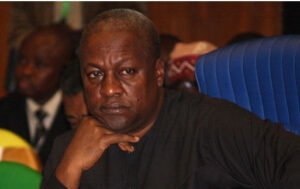
One of the ways to reduce youth unemployment in Africa will be for Governments to redesign education systems to focus more on skill acquisition rather than knowledge accumulation, because skills are usually in higher demand than knowledge.
A lot of people know, but few know how to do, and it is this few who often access the limited opportunities available.
What young people CAN DO positions them well to seize opportunities as against what they KNOW. It is good to know, but better to know HOW TO DO! It is one thing to study Entrepreneurship as a subject and another thing to be asked to start a business. It is one thing to study music and another thing to create music.
Practical learning, time and time again, proves to be the game-changer. As a matter of fact, the learning that happens out of the classroom or lecture hall can unleash hidden potential. Let the student visit the Parliament House, let them see a nature park, watch a game at the stadium, get them to visit the market, etc.
More often than not, teachers/lecturers should allow their students to be taught by industry professionals, creatives or accomplished persons who bring a whole new perspective to the learning experience. When students get to interact with the ‘people on the ground’, they are more likely going to be able to synthesize the theories they are exposed to.
A good blend
What I am advocating for is a good blend of knowledge and skills, where skills, or practice, should be served in greater proportion than knowledge. Many people can take exams, but only few can create or make something with the knowledge they have. And so, it will be better for education to challenge students to be in the business of production rather than mere acquisition of knowledge.
Today, Ghana seeks to move strongly into industrialisation, which for me is a really noble thing to do. But we need to ask ourselves if we are creating the enabling environment? A little is being done, yes, but a lot more needs to be done if we have to be accelerating towards achieving our industrialisation objectives.
For instance, I believe engineering students in this country should be tasked with constructing buildings, fixing roads, mounting streetlights, making appliances that respond to the needs of communities, etc. This is what they should be graded on, not exams. Such an attempt can prove crucial to challenge them into being solution providers; inventors, scientists; people who manufacture!
On a personal level, one of the best lectures I ever had at the Ghana Institute of Journalism (GIJ), where I read Bachelor of Arts Communication Studies, was the Creative Writing class, where every student was tasked with producing a book. Now that’s practical education! Before we knew it, we all wrote books. In fact, I became an author!
In a nutshell, I am one of the many idealists who think everyone should have a job or should be engaged in meaningful work, but the reality proves that, we are not likely to achieve zero unemployment anytime soon.
Therefore, what we can will be to reduce it drastically — and a sure way will be by making education more practical. In our efforts to redesign education for the better, let us make this paramount: more SKILL; less knowledge.
The writer is a Public Speaker & Youth Advocate.







